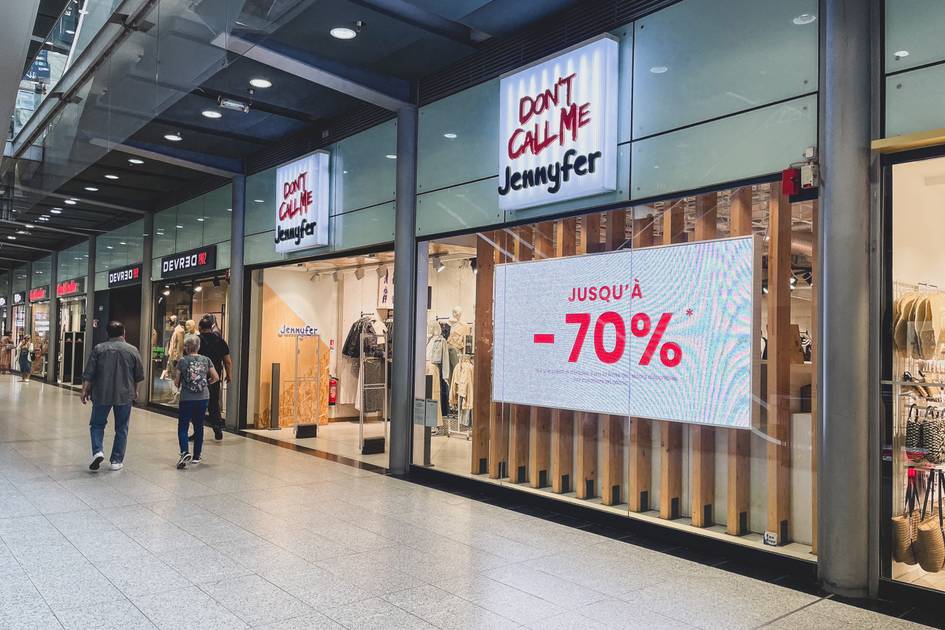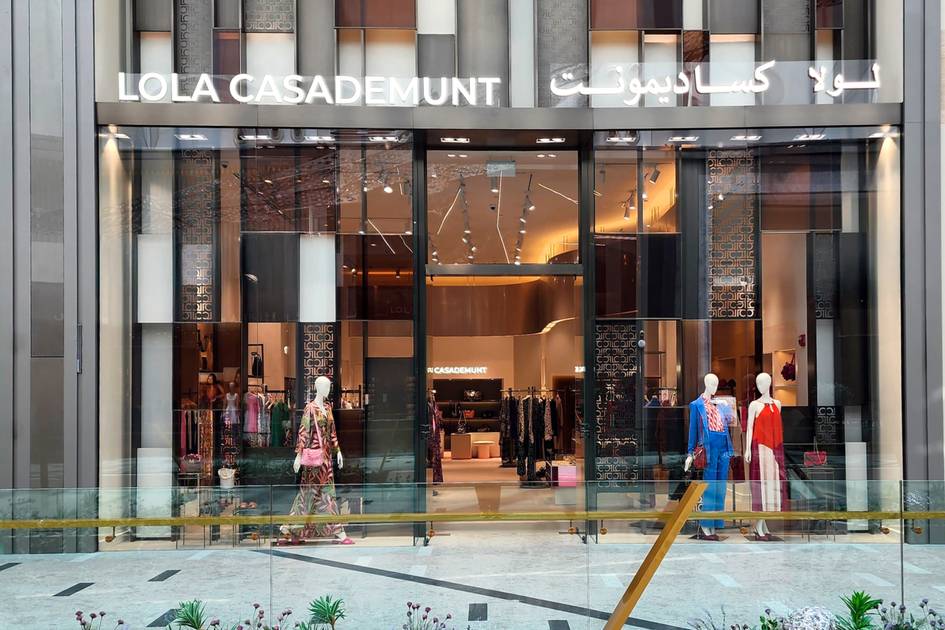Jennyfer in liquidation: a story of many twists and turns
Jennyfer store. Credits: CARINE SCHMITT Hans Lucas / Hans Lucas via AFP After several revival projects, the story of the French fashion brand Jennyfer that began in 1984, is coming to an end. Jennyfer which has 300 stores, both in France and internationally, was placed in liquidation on April 30, 2025. Jennyfer, continuation plan failed For young teenagers in the early 2000s, Jennyfer boutiques, like Pimkie, were the place to get the latest trends. Years later, in 2018, the brand saw a continuous decline in its figures and changed its majority shareholder. It was then sold to a group of investors led by Sébastien Bismuth, former chief executive officer of Undiz. To better reflect the times, Jennyfer reinvented itself. The marketing teams focused the storytelling on diversity and humour, while the brand changed its name to ‘Don’t call me Jennyfer’ (D.C.M Jennyfer). The relaunch worked for a while. Boutiques and pop-ups opened all over France with TikTok-designed fitting rooms, denim corners and self-checkout tills. In 2019, the brand employed 2,000 staff, with a turnover of 360 million euros. Despite the difficult pandemic period, D.C.M Jennyfer held out. It produced collection collaborations and campaigns, and even launched menswear in 2022. Finally, in 2023, rising costs led Don't call me Jennyfer to apply for liquidation. In 2024, a continuation plan was accepted. The brand then replaced its ‘Don’t Call me Jennyfer’ logo with a double NN and became Jennyfer again. This return to its roots was short-lived. Yesterday, on April 30, 2025, the brand was declared in liquidation again. The liquidation of the French brand will impact 1,000 jobs, while 200 stores are expected to close in France. The Actu.fr website published a list of Jennyfer boutiques affected by the closure. Beyond the French stores, several outlets in Belgium are affected, particularly in Brussels. According to a press release issued by the General Confederation of Labour (Confédération générale du travail – CGT), the government and the brand's management bear a heavy responsibility for the social drama unfolding for Jennyfer's employees. The union said it had already raised the alarm to demand financial transparency during the redundancy plans of 2021 and 2023, adding that its request had gone unanswered. “The Fédération CGT condemns the concealment of the procedure from the employee representatives and demands financial transparency, as well as legislative and regulatory supervision, so that employers can no longer liquidate companies through financial arrangements, as has happened to Camaïeu, Alinéa, Habitat and other companies in similar situations,” the press release stated. Any offers from buyers will be examined on May 28. This article was translated to English using an AI tool. FashionUnited uses AI language tools to speed up translating (news) articles and proofread the translations to improve the end result. This saves our human journalists time they can spend doing research and writing original articles. Articles translated with the help of AI are checked and edited by a human desk editor prior to going online. If you have questions or comments about this process email us at info@fashionunited.com

After several revival projects, the story of the French fashion brand Jennyfer that began in 1984, is coming to an end. Jennyfer which has 300 stores, both in France and internationally, was placed in liquidation on April 30, 2025.
Jennyfer, continuation plan failed
For young teenagers in the early 2000s, Jennyfer boutiques, like Pimkie, were the place to get the latest trends. Years later, in 2018, the brand saw a continuous decline in its figures and changed its majority shareholder. It was then sold to a group of investors led by Sébastien Bismuth, former chief executive officer of Undiz.
To better reflect the times, Jennyfer reinvented itself. The marketing teams focused the storytelling on diversity and humour, while the brand changed its name to ‘Don’t call me Jennyfer’ (D.C.M Jennyfer). The relaunch worked for a while. Boutiques and pop-ups opened all over France with TikTok-designed fitting rooms, denim corners and self-checkout tills.
In 2019, the brand employed 2,000 staff, with a turnover of 360 million euros. Despite the difficult pandemic period, D.C.M Jennyfer held out. It produced collection collaborations and campaigns, and even launched menswear in 2022.
Finally, in 2023, rising costs led Don't call me Jennyfer to apply for liquidation. In 2024, a continuation plan was accepted. The brand then replaced its ‘Don’t Call me Jennyfer’ logo with a double NN and became Jennyfer again. This return to its roots was short-lived. Yesterday, on April 30, 2025, the brand was declared in liquidation again.
The liquidation of the French brand will impact 1,000 jobs, while 200 stores are expected to close in France. The Actu.fr website published a list of Jennyfer boutiques affected by the closure. Beyond the French stores, several outlets in Belgium are affected, particularly in Brussels.
According to a press release issued by the General Confederation of Labour (Confédération générale du travail – CGT), the government and the brand's management bear a heavy responsibility for the social drama unfolding for Jennyfer's employees. The union said it had already raised the alarm to demand financial transparency during the redundancy plans of 2021 and 2023, adding that its request had gone unanswered.
“The Fédération CGT condemns the concealment of the procedure from the employee representatives and demands financial transparency, as well as legislative and regulatory supervision, so that employers can no longer liquidate companies through financial arrangements, as has happened to Camaïeu, Alinéa, Habitat and other companies in similar situations,” the press release stated.
Any offers from buyers will be examined on May 28.
FashionUnited uses AI language tools to speed up translating (news) articles and proofread the translations to improve the end result. This saves our human journalists time they can spend doing research and writing original articles. Articles translated with the help of AI are checked and edited by a human desk editor prior to going online. If you have questions or comments about this process email us at info@fashionunited.com
This article was translated to English using an AI tool.























































































































































